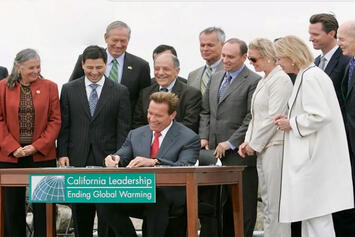
California’s energy woes are getting worse. According to the latest numbers from the Energy Information Administration, the state’s residential electricity prices, already among the highest in America, jumped by 3 cents per kilowatt-hour last year, an increase of 11.9%. The average California homeowner now pays 28.9 cents per kilowatt-hour for electricity, which is the third-highest price in the U.S., behind only Connecticut and Hawaii.
Unfortunately, the 2023 price increases are only a hors d’oeuvre. California’s electric rates are headed for the exosphere. As I explained last March in “California Screamin,” in 2022:
The California Public Utilities Commission unanimously approved a scheme that aims to add more than 25 gigawatts of renewables and 15 gigawatts of batteries to the state's electric grid by 2032 at an estimated cost of $49.3 billion. In addition, the California Independent System Operator released a draft plan to upgrade the state's transmission grid at a cost of some $30.5 billion. The combined cost of those two schemes is about $80 billion.
Given the raging inflation in utility products, that $80 billion estimate is undoubtedly too low. Whatever the ultimate price tag, the state’s aggressive alt-energy plans will inflict more economic pain on the low-income residents of a state with the dubious distinction of having the highest poverty rate in the United States.
From natural gas bans to aggressive alt-energy mandates and bans on vehicles with internal combustion engines, the Golden State provides a clear example of what not to do. While California’s lunatic energy policy decisions go back decades, the most relevant regulations began in 2008. That’s when, as McClatchy newspapers explained:
Governor Arnold Schwarzenegger signed an executive order calling on utilities to provide one-third of their power from renewable resources by 2020. "This will be the most aggressive target in the nation," he said. Increased reliance on renewable energy conceivably could hike future rates, however, because of higher production costs and the need to upgrade transmission facilities. Schwarzenegger's order came on the eve of today's international summit on global climate change in Los Angeles. (Emphasis added.)
Read the rest of this piece at Robert Bryce Substack.
Robert Bryce is a Texas-based author, journalist, film producer, and podcaster. His articles have appeared in a myriad of publications including the Wall Street Journal, New York Times, Forbes, Time, Austin Chronicle, and Sydney Morning Herald.












